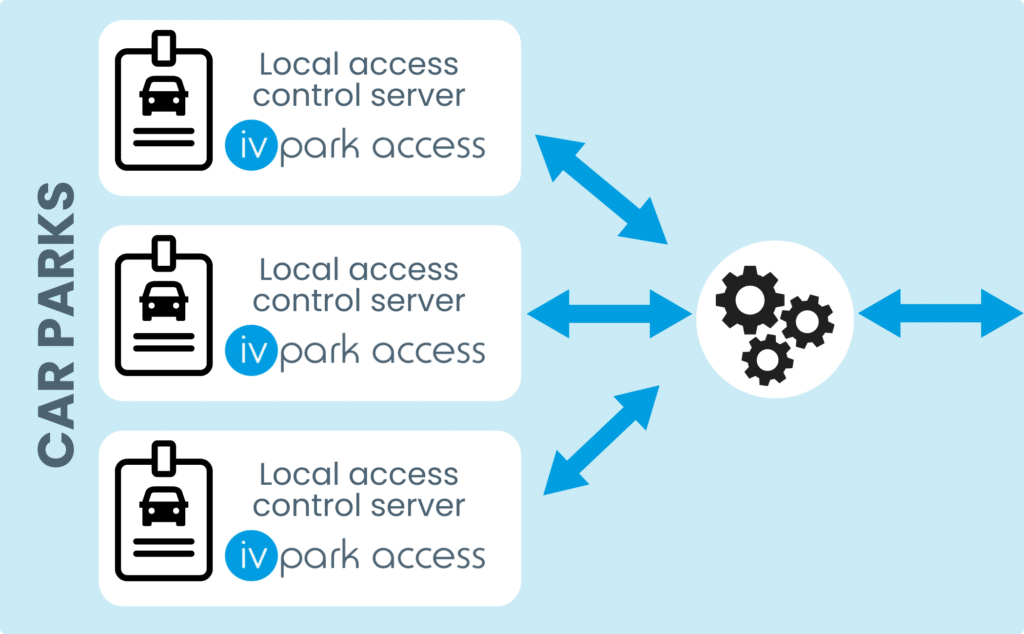Centralized subscriber management and reservations
IVPark Business is a suite of modules offering end-to-end management of parking lot subscribers and reservations.
It covers allcommercial, financial, accounting, management and supervision functions.
Coupled with IVPark Access, it provides a real-time interface with PMS.

Local server

Management system
- Customer file
- Card contract management
- Online sales
- Invoicing
- Accounting
Innovative management
Multi-builder management
A single management system is all it takes to manage all subscribers, whether in tolled or untolled parks.
Multi-site access
Your customers access all sites using NetCeler-encoded badges, compatible with most PMS.
Gradient mode
In the event of a power cut, the terminals switch to stand-alone mode and transmit the stored passages when normal operation resumes.
Easy management
Optimized efficiency
Uninterrupted service continuity

Boost your sales activities
Keep your competitive edge
Make well-informed decisions
Innovation Marketing
Tariff formulas and innovative products perfectly adapted to your customers’ needs, thanks to a robust and comprehensive tariff engine.
Online sales
IVPark Business web services enable you to integrate online sales into your website and establish partnerships with web vendors.
Business Intelligence
In the event of a power cut, the terminals switch to stand-alone mode and transmit the stored passages when normal operation resumes.
Central management system


Local server

Local server

Local server

Local server

Local server











A robust and sophisticated pricing engine
The IVPark Business system allows a combination of 4 types of tariff laws
for calculating overruns
- Linear pricing laws: definition of the price per unit of time, multiplied linearly by the number of units corresponding to the parking period.
- Tariff laws with chained time slots: definition of time slots, and within each slot, definition of tiers with associated amounts. This makes it possible to modulate fare progression within each time slot. Fares are calculated by adding up the amount of each tier.
- Daily price laws: define time slots with a start and end time. Within each band, you can define tiers with an associated amount.
- You can also describe time slots with different rates for different days of the week.
- This makes it possible to have rates that change at a specific time, rather than after a certain period of time.
- Flat-rate pricing laws: definition of a period with a maximum amount, regardless of the law described elsewhere.

